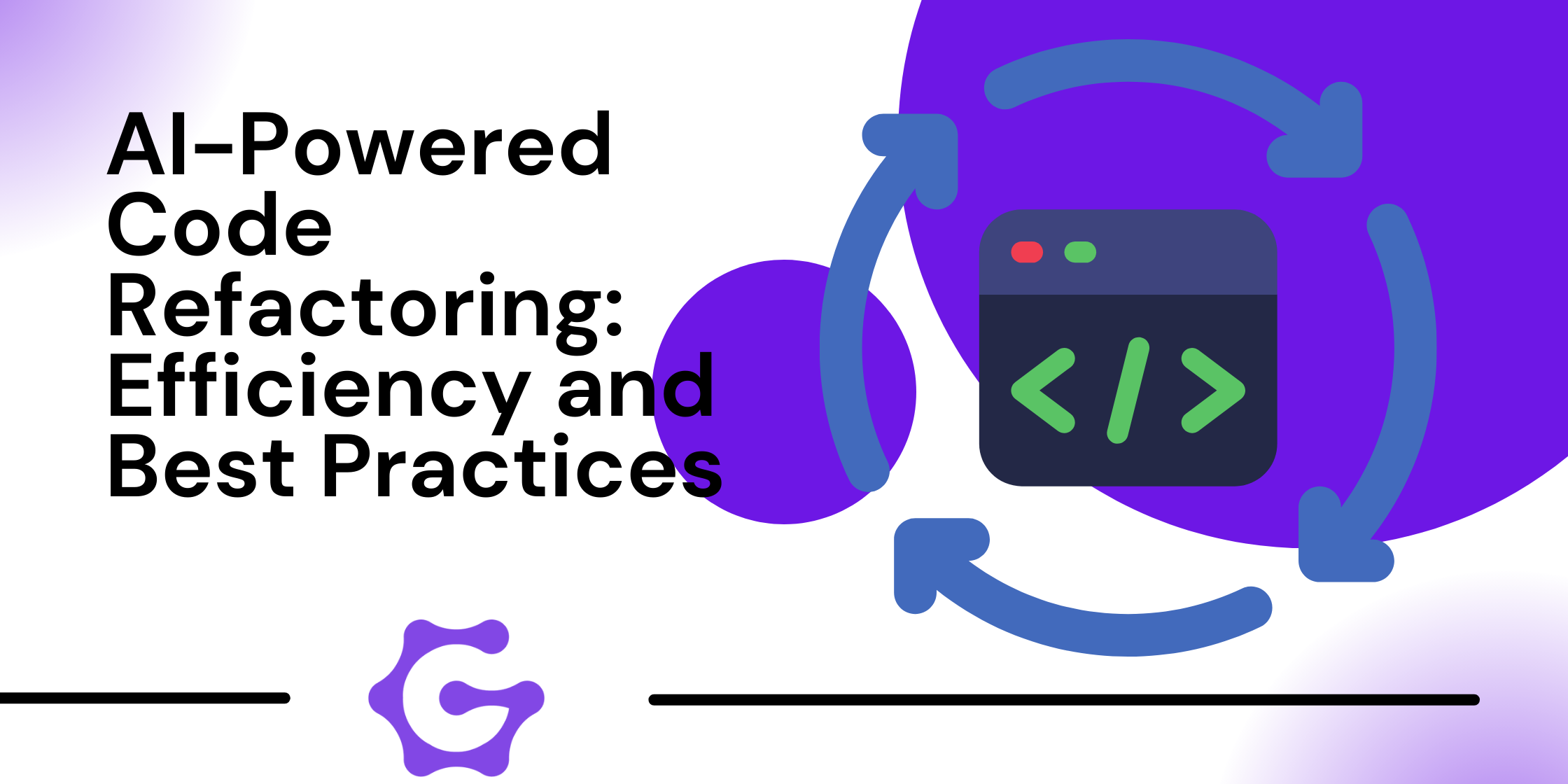AI-Powered Code Refactoring: Efficiency and Best Practices

Working on a massive software project—with thousands of lines of code that all need to be optimized, cleaned up, and maintained—is a heavy lift. And it’s easy for things to get messy fast. Efficiency is key for software dev projects, and that’s where AI driven code refactoring steps in. As projects scale, ensuring clean, optimized code can become a monumental task. Here’s how you can transform traditional workflows by automating code improvements and enforcing best practices with code refactoring.
What is AI Code Refactoring?
At its core, AI code refactoring is the process of using artificial intelligence to analyze and optimize code structures without altering their functionality. Unlike manual refactoring, where you’re the one combing through every line of code yourself (which can be time-intensive and prone to errors), AI-driven refactoring can instantly spot areas for improvement, allowing developers to focus on more complex tasks. This technology enables faster development cycles and improves code quality across the board.
Key Benefits of AI in Code Refactoring
- Enhanced EfficiencyTraditional code refactoring requires meticulous attention to detail, often bogging down even the best developers. With AI-automated code optimization, these tasks can be completed much faster. AI algorithms scan through code to detect redundancies, simplify complex structures, and implement efficiency-driven adjustments. This leads to quicker deployments and more streamlined development processes.
- Consistent Clean CodeWhen multiple developers are working on the same project, keeping code consistent can be a real challenge. AI helps maintain consistency by enforcing best practices for code refactoring across the entire codebase. This standardization not only makes the code easier to understand and maintain but also reduces the chances of introducing bugs during the refactoring process.
- Automating Best PracticesFollowing best practices for code refactoring is essential to ensure code readability, maintainability, and scalability. AI tools can be configured to automatically apply coding standards, simplifying the process for developers. This automation means that even less experienced developers can contribute high-quality code, improving overall team productivity.
Real-World Applications
Many organizations have already started to embrace AI-driven tools for automated code optimization. Integrated development environments (IDEs) like Visual Studio and JetBrains Rider are incorporating AI plugins to assist developers with real-time code refactoring suggestions. Additionally, open-source AI-powered tools like Sourcery and Codota offer developers the power to optimize their code with a few clicks, saving time and enhancing productivity.
For instance, large-scale projects with complex codebases benefit significantly from these tools, as AI can handle repetitive optimization tasks that would otherwise require hours of manual effort. By automating these processes, development teams can redirect their focus to more strategic elements of the project.
The Future of AI in Code Refactoring
As AI technology advances, we can expect even more sophisticated automated code optimization capabilities. Future AI tools may learn from previous refactoring sessions, adapting to specific project needs and improving their recommendations. AI's potential to enhance refactoring through machine learning could lead to fully autonomous code maintenance systems, where AI not only optimizes code but also suggests new features or improvements based on usage data.
The integration of AI code refactoring into the software development lifecycle is reshaping how teams approach code maintenance and optimization. By leveraging automated code optimization and enforcing best practices for code refactoring, AI not only boosts efficiency but also ensures that code remains clean, readable, and reliable. As more teams adopt these tools, AI-powered refactoring is set to become a standard in modern development, enabling software teams to work smarter, not harder.